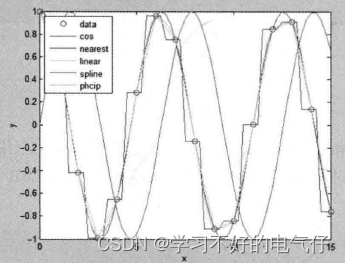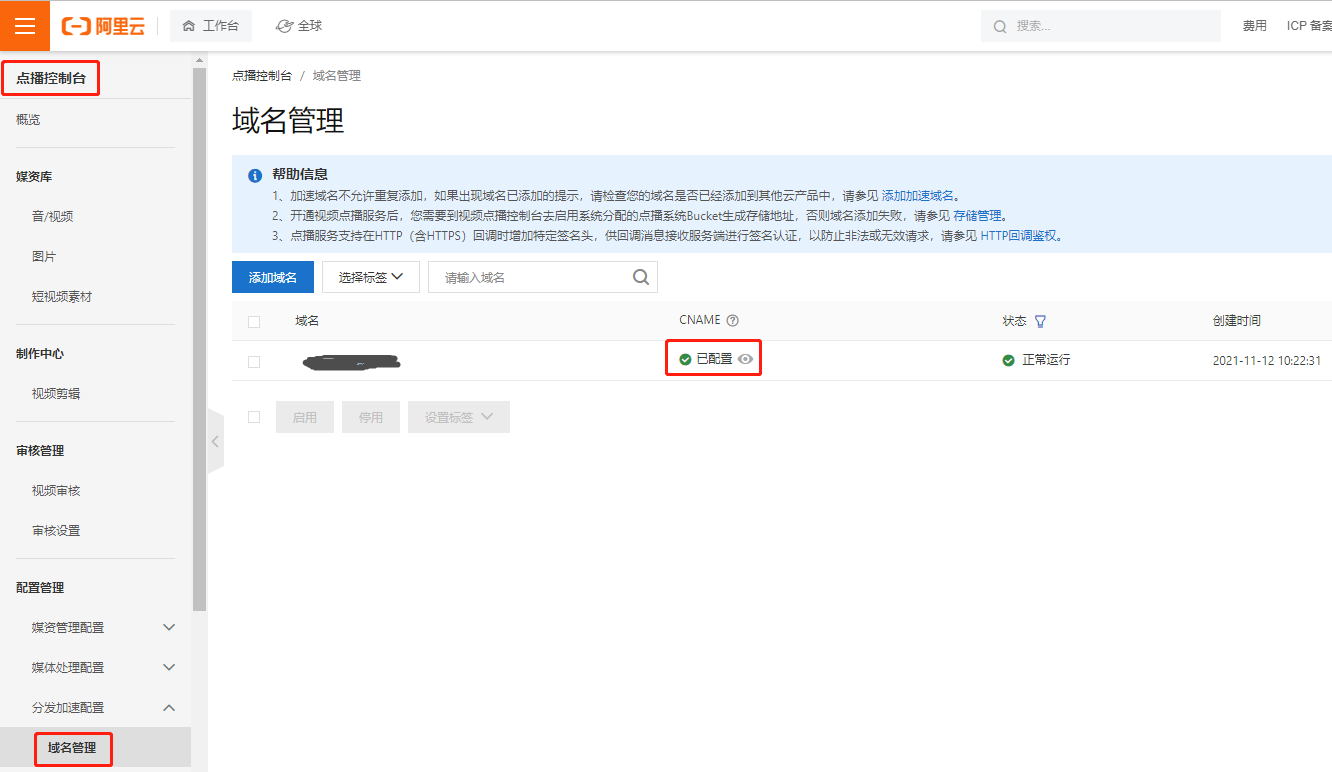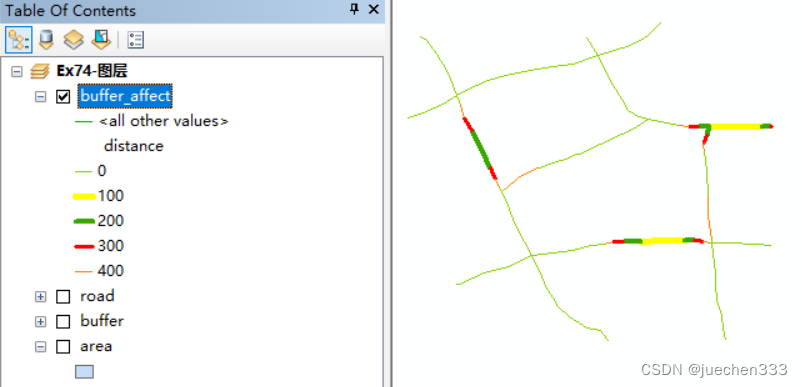胡凡 《算法笔记》 上机实战训练指南 chap3 入门模拟: 3.2 查找元素
文章目录
- 胡凡 《算法笔记》 上机实战训练指南 chap3 入门模拟: 3.2 查找元素
- 【PAT B1041】考试座位号
- 【PAT B1004】成绩排名
- 【PAT B1028】人口普查
- 解决过程(cpp)
- AC代码
- python实现
- AC代码
- pycode1
- pycode2
- 未AC代码
- pycode3原因超时
- pycode4原因还是超时
- 【PAT A1011】World Cup Betting
- 梳理一下题意
- 开始写代码
- 一次性AC
- 去看看别人的代码,感觉自己🤣 杀鸡焉用牛刀
- 【PAT A1006】Sign In and Sign Out
- AC 还是用前面用到的erase&remove
- 乐,再次感叹杀鸡焉用牛刀....🤣🤣🤣🤣🤣
- 书上的做法也值得学习一下
- 要注意这个问题
- 一个遗留问题
- 用python玩玩
- AC代码1 input()
- AC代码2 sys
- 【PAT A1036】Boys VS Girls
- AC
- 还是学习一下书上的代码
【PAT B1041】考试座位号
-
【PAT B1041】考试座位号
-
难蚌 , long long的输出应该写成%lld ,一开始写成%d 卡了很久
#include <iostream> using namespace std; typedef struct student { long long examnum; int testnum; int chairnum; } stu; stu s[1010]; // stu s[1010]; int N, M; int m[1010]; int main() { int en, tn, cn; cin >> N; for (int i = 1; i <= N; i++) { // cin >> en >> tn >> cn; // s[i].examnum = en; // s[i].testnum = tn; // s[i].chairnum = cn; cin >> s[i].examnum >> s[i].testnum >> s[i].chairnum; } cin >> M; for (int i = 1; i <= M; i++) { cin >> m[i]; for (int j = 1; j <= N; j++) { if (m[i] == s[j].testnum) { printf("%lld %d\n", s[j].examnum, s[j].chairnum); } } } }
【PAT B1004】成绩排名
-
【PAT B1004】成绩排名
-
AC代码
#include <iostream> #include <algorithm> using namespace std; int n; struct Student{ char name[12]; char num[12]; int score; bool operator < (const Student &S)const { return this->score > S.score; } }; bool max_cmp(Student S1, Student S2) { return S1.score > S2.score; } struct Student s[1000]; int main() { cin >> n; for(int i = 1; i <= n ; i ++ ) { cin >> s[i].name >> s[i].num >> s[i].score; } sort(s+1,s+1+n,max_cmp); cout << s[1].name << " " << s[1].num << endl; cout << s[n].name << " " << s[n].num << endl; }
【PAT B1028】人口普查
- 【PAT B1028】人口普查
解决过程(cpp)
-
首先这个日期我一开始的想法是 作为int的话,怎么拼凑成一个大数呢
2001/05/12 → 20010512 ,
过程是2001x1000+05x100+12x1,主要是05这种不好直接搞,或者写if条件,那就有点麻烦了
于是写到这里的时候我犹豫了
#include <iostream> #include <cstdio> #include <cstdlib> #include <algorithm> using namespace std; int N; typedef struct Person{ char name[5]; // string date; 想了想感觉不合理,还得拆分字符串转为数字 int year; int month; int day; }Person; Person P[100010]; int valid; //有效生日个数 int main() { cin >> N; for(int i = 0; i < N; i++) { cin >> P[i].name; cin >> P[i].year >> "/" >> P[i].month >> "/" >> P[i].day; } //把出生日看成一个大数字2001/05/12 -> 20010512 //今天:20140906 //那我不如拼接字符串??? return 0; }那我能不能看成字符串,把里面的
/去掉,拼凑成字符串"20010512",再转换为数字试试这样子:👇
#include <iostream> #include <string> using namespace std; int main() { string date = "2001/05/12"; // Replace '/' characters with empty strings date.erase(remove(date.begin(), date.end(), '/'), date.end()); // Convert the resulting string to a number int num = stoi(date); cout << num << endl; // 20010512 return 0; } -
于是我一口气写到了这一步
#include <iostream> #include <cstdio> #include <cstdlib> #include <string> #include <algorithm> using namespace std; int N; typedef struct Person{ // char name[5]; string name; int date; }Person; Person P[100010]; int valid; //有效生日个数 int main() { cin >> N; string tempdate; string tempName; int dateNumTemp; int index = 0; for(int i = 0; i < N; i++) { cin >> tempName; cin >> tempdate; tempdate = tempdate.erase(remove(data.begin(),data.end(),'/'),data.end()); dateNumTemp = stoi(tempdate); if(20140906<=dateNumTemp<=22140906) { P[index].name = tempName; P[index].date = dateNumTemp; index += 1; } } //把出生日看成一个大数字2001/05/12 -> 20010512 //今天:20140906 //那我不如拼接字符串??? for(int j = 0; j < index; j++) cout << index return 0; }突然发现忘记结构体如何使用sort了
-
想起来之后补充上去
同时发现了那个错误
tempdate = tempdate.erase(remove(data.begin(),data.end(),'/'),data.end());#include <iostream> #include <cstdio> #include <cstdlib> #include <string> #include <algorithm> using namespace std; int N; typedef struct Person{ // char name[5]; string name; int date; }Person; Person P[100010]; bool cmp(Person a, Person b) { return a.date < b.date; } int main() { cin >> N; string tempdate; string tempName; int dateNumTemp; int index = 0; for(int i = 0; i < N; i++) { cin >> tempName; cin >> tempdate; // 错误写法...赋值...不需要 tempdate = tempdate.erase(remove(tempdate.begin(),tempdate.end(),'/'),tempdate.end()); tempdate.erase(remove(tempdate.begin(),tempdate.end(),'/'),tempdate.end()); dateNumTemp = stoi(tempdate); if(20140906<=dateNumTemp && dateNumTemp <=22140906) { P[index].name = tempName; P[index].date = dateNumTemp; index += 1; } } sort(P,P+index,cmp); cout << index << P[0].name << P[index-1].name; return 0; }-
突然发现没加空格…
cout << index << P[0].name << P[index-1].name改了之后,居然还是一个测试样例都没过…
-
突然发现了一个很大的问题! 这样子作为限定条件的话, 输入的日期可以有13月41号,14月39号这种,
但这个问题应该不是主要矛盾,先自己测试测试
不是问题,因为题目里面说了“这里确保每个输入的日期都是合法的”
-
测试了一下代码,确实是错误地

-
然后感觉很奇怪…加了一些测试
#include <iostream> #include <cstdio> #include <cstdlib> #include <string> #include <algorithm> using namespace std; int N; typedef struct Person{ // char name[5]; string name; int date; }Person; Person P[100010]; bool cmp(Person a, Person b) { return a.date < b.date; } int main() { cin >> N; string tempdate; string tempName; int dateNumTemp; int index = 0; for(int i = 0; i < N; i++) { cin >> tempName; cin >> tempdate; tempdate.erase(remove(tempdate.begin(),tempdate.end(),'/'),tempdate.end()); dateNumTemp = stoi(tempdate); printf("%d\n",dateNumTemp); printf("----------\n"); if(20140906<=dateNumTemp && dateNumTemp <=22140906) { P[index].name = tempName; cout << P[index].name << endl; P[index].date = dateNumTemp; printf("%d\n",P[index].date); index += 1; } } sort(P,P+index,cmp); cout << index << " " << P[0].name << " " << P[index-1].name; return 0; }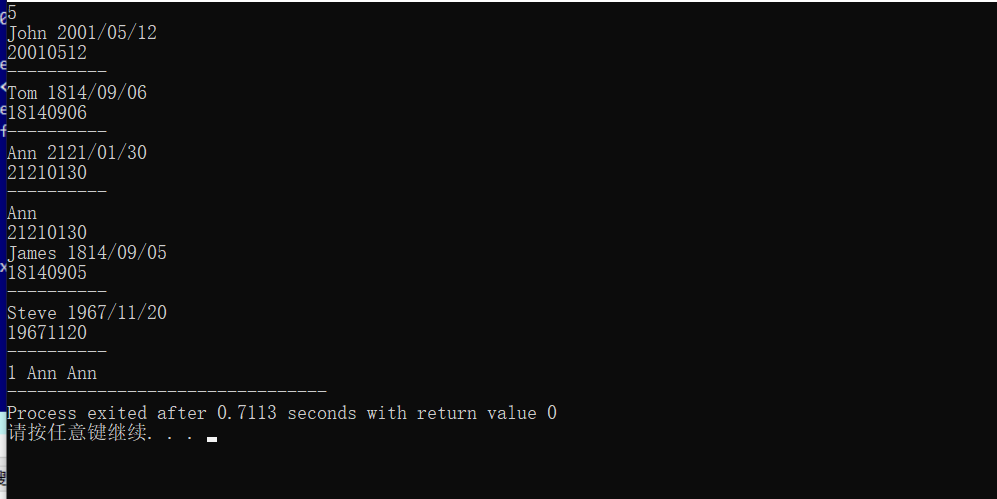
-
stoi需要C++11,在vscode里面暂时没有学如何去配置,就先用dev c++来跑了
-
突然发现,🤣,日期那里搞错咯,应该往前面推两百岁,而不是往未来🤣🤣🤣
#include <iostream> #include <cstdio> #include <cstdlib> #include <string> #include <algorithm> using namespace std; int N; typedef struct Person{ // char name[5]; string name; int date; }Person; Person P[100010]; bool cmp(Person a, Person b) { return a.date < b.date; } int main() { cin >> N; string tempdate; string tempName; int dateNumTemp; int index = 0; for(int i = 0; i < N; i++) { cin >> tempName; cin >> tempdate; tempdate.erase(remove(tempdate.begin(),tempdate.end(),'/'),tempdate.end()); dateNumTemp = stoi(tempdate); if(18140906<=dateNumTemp && dateNumTemp <=20140906) { P[index].name = tempName; P[index].date = dateNumTemp; index += 1; } } sort(P,P+index,cmp); cout << index << " " << P[0].name << " " << P[index-1].name; return 0; }这个时候,看起来是对了的
[外链图片转存失败,源站可能有防盗链机制,建议将图片保存下来直接上传(img-IOd779Pi-1673287468238)(null)]
However…

AC代码
-
经过大佬指点,知道错的地方在哪了
-
但是有可能过滤完了合法的人是0个
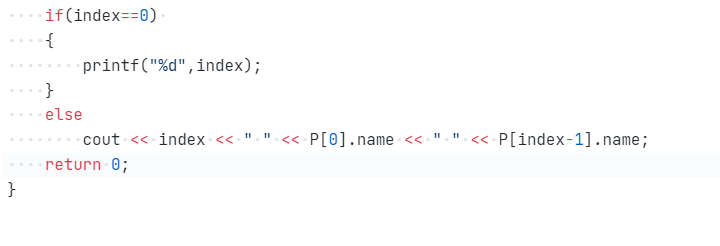
如果全过滤掉了,那么index为0, P[-1].name就错了, P[0].name 没有输入内容
-
-
AC代码
#include <iostream> #include <cstdio> #include <cstdlib> #include <string> #include <algorithm> using namespace std; int N; typedef struct Person{ // char name[5]; string name; int date; }Person; Person P[100010]; bool cmp(Person a, Person b) { return a.date < b.date; } int main() { cin >> N; string tempdate; string tempName; int dateNumTemp; int index = 0; for(int i = 0; i < N; i++) { cin >> tempName; cin >> tempdate; tempdate.erase(remove(tempdate.begin(),tempdate.end(),'/'),tempdate.end()); dateNumTemp = stoi(tempdate); if(18140906<=dateNumTemp && dateNumTemp <=20140906) { P[index].name = tempName; P[index].date = dateNumTemp; index += 1; } } sort(P,P+index,cmp); cout << index << " " << P[0].name << " " << P[index-1].name; return 0; }
感觉我的比书上的做法更好(
书上是套了好多if else

erase和remove是如何工作的:
remove是改变了元素的顺序,erase才是真的删除
- C++ 中 remove 与 erase 的理解
- https://juejin.cn/post/6844903817734160391
- c++ string的erase删除方法
python实现
AC代码
pycode1
错误代码
import sys
N = int(sys.stdin.readline())
P = []
for i in range(N):
temp = sys.stdin.readline().split()
tempName = temp[0]
tempDate = temp[1]
dateNumTemp = int(tempDate.replace('/',''))
if 18140906<=dateNumTemp and dateNumTemp <=20140906:
P.append([tempName,dateNumTemp])
P.sort(key=lambda x:x[1])
print(len(P),P[0][0],P[-1][0])

加上len的判断就AC啦
import sys
N = int(sys.stdin.readline())
P = []
for i in range(N):
temp = sys.stdin.readline().split()
tempName = temp[0]
tempDate = temp[1]
dateNumTemp = int(tempDate.replace('/',''))
if 18140906<=dateNumTemp and dateNumTemp <=20140906:
P.append([tempName,dateNumTemp])
P.sort(key=lambda x:x[1])
if len(P) == 0:
print(0)
else:
print(len(P),P[0][0],P[-1][0])
pycode2
这个错误应该是input导致的非零返回
def find_youngest_oldest():
# Read N and create a list of Person objects
N = int(input())
person_list = []
for i in range(N):
name = input()
birthday = input().replace('/', '')
date_num = int(birthday)
if 18140906 <= date_num and date_num <= 20140906:
person_list.append((name, date_num))
# Sort the list by birthday
person_list.sort(key=lambda x: x[1])
# Print the number of valid birthdays, and the name of the youngest and oldest person
print(len(person_list), person_list[0][0], person_list[-1][0])
find_youngest_oldest()

下面这个AC了
import sys
def find_youngest_oldest():
# Read N and create a list of Person objects
N = int(sys.stdin.readline())
person_list = []
for i in range(N):
name,birthday = sys.stdin.readline().split()
# name = input()
birthday = birthday.replace('/', '')
date_num = int(birthday)
if 18140906 <= date_num and date_num <= 20140906:
person_list.append((name, date_num))
# Sort the list by birthday
person_list.sort(key=lambda x: x[1])
if len(person_list)==0:
print(0)
# Print the number of valid birthdays, and the name of the youngest and oldest person
else:
print(len(person_list), person_list[0][0], person_list[-1][0])
find_youngest_oldest()

未AC代码
pycode3原因超时
import sys
import datetime
class Person:
def __init__(self, name, birthday):
self.name = name
self.birthday = datetime.datetime.strptime(birthday, '%Y/%m/%d')
def find_youngest_oldest():
# Read N and create a list of Person objects
N = int(sys.stdin.readline())
person_list = []
for i in range(N):
name, birthday = sys.stdin.readline().split()
person_list.append(Person(name, birthday))
# Sort the list by birthday
person_list.sort(key=lambda x: x.birthday)
# Filter out invalid birthdays (less than 200 years ago or in the future)
today = datetime.datetime(2014, 9, 6)
two_hundred_years_ago = datetime.datetime(1814, 9, 6)
# two_hundred_years_ago = today - datetime.timedelta(days=365*200)
valid_people = [p for p in person_list if p.birthday < today and p.birthday > two_hundred_years_ago]
# Print the number of valid birthdays, and the name of the youngest and oldest person
print(len(valid_people), valid_people[0].name, valid_people[-1].name)
# Test the function
find_youngest_oldest()

-
发现了两个错误,非零返回应该是前面那个len为0时,数组下标越界导致的?…
于是加上len为0时的分支, 还有个错误就是 应该是闭区间 而不是开区间,改成<=和>=
valid_people = [p for p in person_list if p.birthday <= today and p.birthday >= two_hundred_years_ago]import sys import datetime class Person: def __init__(self, name, birthday): self.name = name self.birthday = datetime.datetime.strptime(birthday, '%Y/%m/%d') def find_youngest_oldest(): # Read N and create a list of Person objects N = int(sys.stdin.readline()) person_list = [] for i in range(N): name, birthday = sys.stdin.readline().split() person_list.append(Person(name, birthday)) # Sort the list by birthday person_list.sort(key=lambda x: x.birthday) # Filter out invalid birthdays (less than 200 years ago or in the future) today = datetime.datetime(2014, 9, 6) two_hundred_years_ago = datetime.datetime(1814, 9, 6) # two_hundred_years_ago = today - datetime.timedelta(days=365*200) valid_people = [p for p in person_list if p.birthday <= today and p.birthday >= two_hundred_years_ago] # Print the number of valid birthdays, and the name of the youngest and oldest person if len(valid_people)==0: print(0) else: print(len(valid_people), valid_people[0].name, valid_people[-1].name) # Test the function find_youngest_oldest()
emm, python确实慢,最后一个不知道该咋解决了
-
类的实例化那一步写成这个也行
p = Person(name,birthday) person_list.append(p)
-
pycode4原因还是超时
-
想到了力扣上的一些代码风格
噢对,如果没有import sys 会显示五个非零返回…
import datetime from collections import deque from typing import List import sys class Person: def __init__(self, name: str, birthday: str) -> None: self.name = name self.birthday = datetime.datetime.strptime(birthday, '%Y/%m/%d') def find_youngest_oldest(N: int, people: List[Person]) -> None: # Sort the list of Person objects by birthday using quicksort people.sort(key=lambda x: x.birthday) # Use a deque to store the valid people today = datetime.datetime(2014, 9, 6) two_hundred_years_ago = datetime.datetime(1814, 9, 6) valid_people = deque() # Iterate through the list of people and add the valid ones to the deque for person in people: if person.birthday <= today and person.birthday >= two_hundred_years_ago: valid_people.append(person) if len(valid_people)==0: print(0) # Print the number of valid birthdays, and the name of the youngest and oldest person else: print(len(valid_people), valid_people[0].name, valid_people[-1].name) # Test the function N = int(sys.stdin.readline()) people = [] for i in range(N): name, birthday = sys.stdin.readline().split() people.append(Person(name, birthday)) find_youngest_oldest(N, people)
里面参与比大小的datetime是这种格式的
1990-01-01 00:00:00
1980-01-01 00:00:00
1970-01-01 00:00:00- 参考:python3 datetime全解,比大小,做差值运算,转化成月、周、日、年等各种级别的运算
- 搜了一些
- OJ python答题结果"返回非零"
- python非零返回_PTA中提交Python3程序的一些套路
- PAT 中提交 Python3 的一些注意事项
- 【python & ACM 输入输出的处理:sys.stdin.readline().strip().split())】
- python3 牛客网:OJ在线编程常见输入输出练习(ACM模式)
【PAT A1011】World Cup Betting
- 【PAT A1011】World Cup Betting
梳理一下题意
-
Wfor win,Tfor tie, andLfor lose. -
There was an odd assigned to each result. The winner’s odd would be the product of the three odds times 65%.
For example, 3 games’ odds(概率,投注赔率) are given as the following:
W T L 1.1 2.5 1.7 1.2 3.1 1.6 4.1 1.2 1.1To obtain the maximum profit, one must buy
Wfor the 3rd game,Tfor the 2nd game, andTfor the 1st game. If each bet takes 2 yuans, then the maximum profit would be(4.1×3.1×2.5×65%−1)×2=39.31yuans (accurate up to 2 decimal places).
没有完全看懂,大概是从输入的9个数据里面找到3个最大的,然后(3个数的积x65%-1)×(选择到的game的个数)
啊不,再看了一眼,是找出每一行最大的相乘?
第一行最大的是2.5,T
第二行最大的是3.1,T
第三行最大的是4.1,W
啊不不,再看一眼题目,each bet takes 2 yuans , 2不是选择到的game的个数哈哈哈, 所有的都是乘以2
开始写代码
- 首先是要在这个二维数组里面找到每一行的max element,每行就3个,用max应该比较快,同时还需要知道max element的index,从而知道 是 T W 还是 L
一次性AC
#include <iostream>
#include <algorithm>
#include <cstdio>
#include <cstdlib>
using namespace std;
const int N = 3;
int main()
{
double odds[N][N];
for(int i = 0; i < N; i++)
{
for(int j = 0; j < N; j++)
{
cin >> odds[i][j];
}
}
double res[N];
for(int i = 0; i < N; i++)
{
double* row = odds[i];
double max_elm = *max_element(row,row+N);
int max_index = distance(row, max_element(row,row+N));
res[i]= max_elm;
if(max_index==0)
cout << "W ";
else if(max_index==1)
cout << "T ";
else if(max_index==2)
cout << "L ";
}
double product = 1.0;
for(int i = 0; i < N; i++)
{
product *= res[i];
}
product = (product*0.65-1)*2;
printf("%.2f", product);
return 0;
}
关于里面的 max_element() 和 distance()
- The
max_elementfunction returns an iterator to the maximum element in the range [first, last),- The
distancefunction calculates the distance between two iterators. In this case, we pass the row of the matrix as the range and get the maximum element and its index in one step.

去看看别人的代码,感觉自己🤣 杀鸡焉用牛刀
-
参考知乎博主的代码
【PAT A1011】World Cup Betting - Chilan Yuk的文章 - 知乎 https://zhuanlan.zhihu.com/p/399861108
#include <iostream> #include <algorithm> #include <cstdio> #include <cstdlib> using namespace std; const int N = 3; int main() { double pro = 0.65; double a, b, c; for(int i = 0; i < N; i++) { cin >> a >> b >> c; if(a>=b && a>=c) { pro *= a; cout << "W "; } else if(b>=a && b>=c) { pro *= b; cout << "T "; } else if(c>=a && c>=b) { pro *= c; cout << "L "; } } printf("%.2f\n",(pro-1)*2); return 0; } -
不过我那个代码通用性确实强一点哈哈哈哈
-
书上的代码如下
#include <iostream> #include <algorithm> #include <cstdio> #include <cstdlib> using namespace std; const int N = 3; char S[3] = {'W','T','L'}; int idx; int main() { double ans = 1.0, tmp, a; for(int i = 0; i < 3; i++) { tmp = 0.0; for(int j = 0; j < 3; j++) { cin >> a; if(a > tmp) { tmp = a; idx = j; } } ans *= tmp; printf("%c ", S[idx]); } printf("%.2f",(ans * 0.65 - 1) * 2); return 0; }
【PAT A1006】Sign In and Sign Out
- 【PAT A1006】Sign In and Sign Out
AC 还是用前面用到的erase&remove
-
代码如下
#include <iostream> #include <algorithm> #include <string> #include <cstdio> #include <cstdlib> using namespace std; typedef struct Time{ string ID; string signIn; string signOut; }Time; // 思路:去掉冒号转换为字符串比大小 // 左边一列最小的就是unlock门的 // 右边一列最大的就是lock门的 int M; Time t[100010]; bool cmp1(Time t1, Time t2) { return t1.signIn < t2.signIn; } bool cmp2(Time t1, Time t2) { return t1.signOut > t2.signOut; } int main() { string signInTemp; string signOutTemp; cin >> M; for(int i = 0; i < M; i++) { cin >> t[i].ID; cin >> signInTemp; cin >> signOutTemp; signInTemp.erase(remove(signInTemp.begin(),signInTemp.end(),':'),signInTemp.end()); signOutTemp.erase(remove(signOutTemp.begin(),signOutTemp.end(),':'),signOutTemp.end()); t[i].signIn = signInTemp; t[i].signOut = signOutTemp; } //排序两次? cmp1 按照第一个元素来排序 cmp2 按照第二个元素来排序 sort(t,t+M,cmp1); cout << t[0].ID << " "; sort(t,t+M,cmp2); cout << t[0].ID; return 0; }乐,再次感叹杀鸡焉用牛刀…🤣🤣🤣🤣🤣
-
突然发现,完全没有必要把
:去掉,带冒号的字符串也完全可以比较大小 -
把那两行去掉也能AC
#include <iostream> #include <algorithm> #include <string> #include <cstdio> #include <cstdlib> using namespace std; typedef struct Time{ string ID; string signIn; string signOut; }Time; // 思路:去掉冒号转换为字符串比大小 // 左边一列最小的就是unlock门的 // 右边一列最大的就是lock门的 int M; Time t[100010]; bool cmp1(Time t1, Time t2) { return t1.signIn < t2.signIn; } bool cmp2(Time t1, Time t2) { return t1.signOut > t2.signOut; } int main() { string signInTemp; string signOutTemp; cin >> M; for(int i = 0; i < M; i++) { cin >> t[i].ID; cin >> signInTemp; cin >> signOutTemp; t[i].signIn = signInTemp; t[i].signOut = signOutTemp; } //排序两次? cmp1 按照第一个元素来排序 cmp2 按照第二个元素来排序 sort(t,t+M,cmp1); cout << t[0].ID << " "; sort(t,t+M,cmp2); cout << t[0].ID; return 0; }
-
书上的做法也值得学习一下

确实,这样子省空间
#include <iostream>
#include <cstdio>
#include <cstring>
using namespace std;
struct pNode{
char id[20];
int hh, mm, ss;
}temp, ans1, ans2;
bool great(pNode node1,pNode node2)
{
if(node1.hh != node2.hh) return node1.hh > node2.hh;
if(node1.mm != node2.mm) return node1.mm > node2.mm;
return node1.ss > node2.ss;
}
int main()
{
int n;
cin >> n;
ans1.hh = 24, ans2.mm = 60, ans1.ss = 60;
ans2.hh = 0, ans2.mm = 0, ans2.ss = 0;
// string colons = ":";
for(int i = 0; i < n; i++)
{
// cin >> temp.id >> temp.hh >> ":" >> temp.mm >> ":" >> temp.ss;
scanf("%s %d:%d:%d", temp.id, &temp.hh, &temp.mm, &temp.ss);
if(great(temp,ans1) == false)
ans1 = temp;
// cin >> temp.id >> temp.hh >> ":" >> temp.mm >> ":" >> temp.ss;
scanf("%d:%d:%d", &temp.hh, &temp.mm, &temp.ss);
if(great(temp,ans2)== true)
ans2 = temp;
}
cout << ans1.id << " " << ans2.id;
}
要注意这个问题
cin >> temp.id >> temp.hh >> ":" >> temp.mm >> ":" >> temp.ss;还有string colons=":"; cin >> colons 都是不可以的!
The >> operator is used to extract values from an input stream, such as cin, and store them in variables.
一个遗留问题
承接上文,那么我把冒号也当一个变量读进去
但是不管它可以吗
string colons;
for (int i = 0; i < n; i++)
{
cin >> temp.id;
cin >> temp.hh >> colons >> temp.mm >> colons >> temp.ss;
// scanf("%s %d:%d:%d", temp.id, &temp.hh, &temp.mm, &temp.ss);
if (great(temp, ans1) == false)
ans1 = temp;
// cin >> temp.id >> temp.hh >> ":" >> temp.mm >> ":" >> temp.ss;
// scanf("%d:%d:%d", &temp.hh, &temp.mm, &temp.ss);
cin >> temp.hh >> colons >> temp.mm >> colons >> temp.ss;
if (great(temp, ans2) == true)
ans2 = temp;
}
但是,五个样例都是答案错误,我自己去IDE里面跑也是有问题,但是不知道问题出在哪里…
用python玩玩
中途遇到不少次非零返回,发现很多时候是因为读的个数不对,还有list或者tuple的下标越界了之类的…
AC代码1 input()
# Read the input
m = int(input())
records = []
for i in range(m):
line = input().split()
id_number = line[0]
sign_in_time = line[1]
sign_out_time = line[2]
records.append((id_number, sign_in_time,sign_out_time))
# Sort the records by sign in time
# 默认升序
records.sort(key=lambda x: x[1])
print(records[0][0],end=" ")
records.sort(key=lambda x: x[2],reverse = True)
print(records[0][0])
注意sort默认是升序,要降序则需要加上reverse = True
AC代码2 sys
import sys
M = int(sys.stdin.readline())
t = []
for i in range(M):
ID,signIn,signOut = sys.stdin.readline().split()
t.append((ID,signIn,signOut))
t = sorted(t, key=lambda x: x[1])
print(t[0][0], end=' ')
t = sorted(t, key=lambda x: x[2], reverse=True)
print(t[0][0])
【PAT A1036】Boys VS Girls
- 【PAT A1036】Boys VS Girls
AC
#include <cstdio>
#include <cstdlib>
#include <iostream>
#include <algorithm>
using namespace std;
typedef struct Student
{
string name;
char gender;
string ID;
int grade;
} STU;
STU boys[1010]; // 题目没给范围嘤
STU girls[1010];
bool cmp(STU s1, STU s2)
{
return s1.grade < s2.grade;
}
int main()
{
int N;
cin >> N; // 老忘记
int numOfBoys = 0;
int numOfGirls = 0;
string name;
char gender;
string ID;
int grade;
for (int i = 0; i < N; i++)
{
cin >> name >> gender >> ID >> grade;
// cin >> s[i].name >> s[i].gender >> s[i].ID >> s[i].grade;
if (gender == 'M')
{
boys[numOfBoys].name = name;
boys[numOfBoys].gender = gender;
boys[numOfBoys].ID = ID;
boys[numOfBoys].grade = grade;
numOfBoys++;
}
else
{
girls[numOfGirls].name = name;
girls[numOfGirls].gender = gender;
girls[numOfGirls].ID = ID;
girls[numOfGirls].grade = grade;
numOfGirls++;
}
}
// cmp是升序
sort(boys, boys + numOfBoys, cmp);
sort(girls, girls + numOfGirls, cmp);
if (numOfGirls == 0)
printf("Absent\n");
else
cout << girls[numOfGirls - 1].name << " " << girls[numOfGirls - 1].ID << endl;
if (numOfBoys == 0)
printf("Absent\n");
else
cout << boys[0].name << " " << boys[0].ID << endl;
if (numOfBoys == 0 || numOfGirls == 0)
printf("NA");
else
cout << girls[numOfGirls - 1].grade - boys[0].grade;
return 0;
}

还是学习一下书上的代码
主要是书上没有开那么大的结构体,没有依赖sort
#include <cstdio>
#include <cstdlib>
#include <iostream>
#include <algorithm>
using namespace std;
struct Student
{
char name[15];
char id[15];
int score;
}M, F, temp; //M为分数最低的男生 F为分数最高的女生
void init()
{
M.score = 101;
F.score = -1;
}
int main()
{
init();
int N;
cin >> N; // 老忘记
char gender;
for (int i = 0; i < N; i++)
{
cin >> temp.name >> gender >> temp.id >> temp.score;
if (gender == 'M' && temp.score < M.score)
{
M = temp;
}
else if(gender == 'F' && temp.score > F.score)
{
F = temp;
}
}
if(F.score == -1)
printf("Absent\n"); //没有女生 这个方法好诶,相当于flag没变化就说明没有输入
else
cout << F.name <<" " << F.id << endl;
if(M.score==101)
cout << "Absent" << endl;
else
cout << M.name <<" "<< M.id << endl;
if(F.score == -1 || M.score == 101)
cout << "NA";
else
cout << F.score - M.score;
return 0;
}









